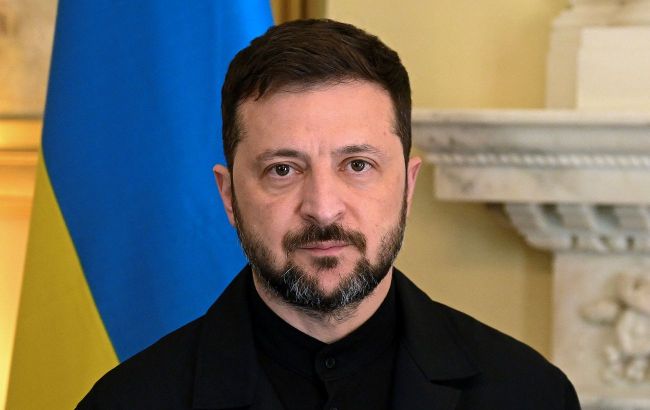Zelenskyy wants military contingents of major powers in Ukraine
 President of Ukraine Volodymyr Zelenskyy (photo: Getty Images)
President of Ukraine Volodymyr Zelenskyy (photo: Getty Images)
It is important that among the countries sending their military contingent to Ukraine there are "major powers," President of Ukraine Volodymyr Zelenskyy said before a meeting with German Vice Chancellor and Finance Minister Lars Klingbeil, Ukrinform reported.
"I think there will be different levels of involvement (of countries in security guarantees for Ukraine – ed.), but it is not for me to decide and speak about 'boots on the ground.' I think it is important that they come from major countries, leading participants of the Coalition of the Willing. That matters. 'Boots on the ground’' is an important factor," Zelenskyy said.
The president emphasized that the main security guarantee is a strong Ukrainian army.
"We do not want to reduce the number of soldiers, because it is very dangerous," the head of state noted.
Zelenskyy stressed that for this, increased funding of the Armed Forces of Ukraine is necessary, as well as of the entire Ukrainian military sector – primarily domestic drone production.
Deployment of troops to Ukraine
On August 18, a meeting was held at the White House with the leaders of Ukraine, the United States, France, Finland, Germany, the United Kingdom, Italy, as well as the President of the European Commission and the NATO Secretary General. The main topic of discussion was security guarantees for Ukraine.
The allies considered the possibility of security guarantees similar to NATO's Article 5, but outside the Alliance.
During the negotiations, US President Donald Trump confirmed US participation in these guarantees, but emphasized that the main burden should fall on European partners, and ruled out the deployment of American troops to Ukraine.
Instead, the Coalition of the Willing announced its readiness to deploy deterrence forces in Ukraine. Following the meeting at the White House, about 10 countries agreed to send troops to Ukraine. The coalition will also send its military planners to the United States for consultations.
In particular, Germany stated that it does not rule out the possibility of deploying its military contingent in Ukraine, while the United Kingdom directly emphasized its readiness to send troops already in the first week after the entry into force of a potential peace agreement or ceasefire deal with Russia.
Estonia is ready to send a peacekeeping military contingent to Ukraine consisting of one company.
At the same time, Polish Defense Minister Władysław Kosiniak-Kamysz stated that his country will not send troops to Ukraine.
According to him, among the key tasks of the country are the defense of NATO's eastern flank and the protection of the Polish-Belarusian border, where 5,000–6,000 servicemen are constantly engaged in maintaining security, as well as providing infrastructure and logistics for a "potential peacekeeping mission."
Government spokesman of Greece Pavlos Marinakis also stated that the country "will help in this matter, but not with troops."
Latvian President Edgars Rinkēvičs said that it is premature to discuss sending troops to Ukraine. According to him, first of all it is necessary to conclude a peace treaty and understand what the main elements of this agreement will be, what the security guarantees will look like, and what the role of European countries will be.

